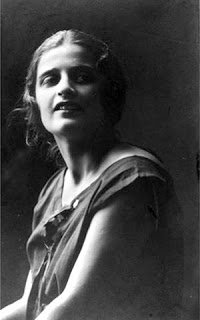This post is part of a series on Gödel's incompleteness theorem. You may find all of them here:
- Gödel's incompleteness theorem: Background.
- Gödel's incompleteness theorem: Foreground.
- Gödel's incompleteness theorem: Underground.
Paranoid Randroids
One of my hobbies is throwing myself in at the deep end somewhere exotic and seeing if I could swim, metaphorically speaking. It turns out that doggy paddling makes up for a lack of flamboyance with efficacy in buoyancy. Recently, I wondered how do we know that something is true?

Ayn Rand, who believed that something is true when it obeyed Aristotle's laws of thought. That is, the law of identity, the law of noncontradiction and the law of excluded middle.
Something is true because you can prove that it is true
Being a Randroid, the short and sweet answer is of course that something is true because it is proved to be true. We prove that something is true with reason. Reason rests on logic. Logic rests on axioms. This is all good and well, but how do we know that axioms are true? That is, what proves axioms true?
The trouble with axioms
An axiom is a self-evident statement. Naturally, it has to be self-evident to someone who'd like to make use of the axiom. But if it relies on someone to recognise it as self-evident, then it's not all that self-evident after all. Thus we get more people involved and the truth value of an axiom is determined by some kind of democracy whereby:
- An axiom is true if it is self-evident to enough people.
- An axiom is false if it is not self-evident to enough people.
- All axioms are equally true, but some axioms are more true than others.
This is dangerously close to faith, which would make axioms true because we believe them to be true. Faith alone inevitably leads to a dangerous mindfield of paradoxes and inconsistencies because it is a curiosity stopper. Faith alone was certainly not enough for David Hilbert, who wanted at the very least to have mathematical axioms that are more true than others.
Hilbert's program
Hilbert suggested that maths axioms could show itself to be more true than other axioms by showing that:
- There is a finite number of mathematical axioms, which would make maths complete.
- Each axiom has a definite true or false answer, which would make maths consistent.
The purpose of Hilbert's program is to formalise all of mathematics. That is, it would give mathematicians the language they need to express anything with the knowledge that it is either true or false, but at least it is not wronger than wrong.